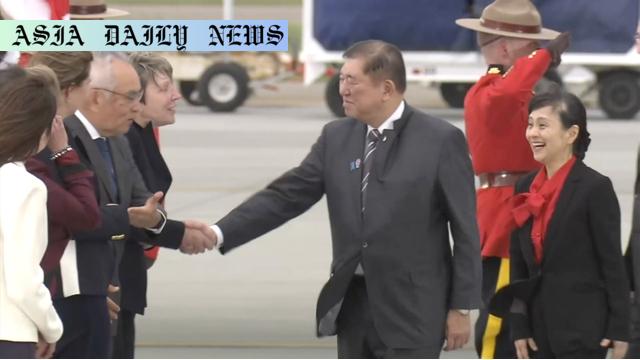G7 Summit leaders to discuss rising tensions, economic stability, and Indo-Pacific developments.

Introduction to the G7 Summit and Japan’s Role
The G7 Summit is a pivotal annual gathering of seven of the world’s largest advanced economies. This year, the summit has brought global leaders together in Kananaskis, western Canada, with a focus on critical international issues such as geopolitical tensions, economic stability, and cooperative strategies for growth. Japan’s Prime Minister Ishiba Shigeru has taken a leading role, highlighting his unwavering commitment to fostering peace, stability, and economic resilience in a time of uncertainty.
Key Global Issues on the Agenda
This year, the G7 leaders are addressing pressing global challenges, including the rising tensions in the Middle East, the ongoing conflict in Ukraine, and concerns surrounding developments in the Indo-Pacific region. These discussions aim to amplify calls for multilateral cooperation and to formulate actionable steps toward addressing these crises. Japan’s Prime Minister Ishiba is expected to underline the importance of unity among G7 nations, emphasizing collaborative efforts to navigate these complex geopolitical landscapes.
Japan’s Call for Economic Collaboration
Economic security is a top priority for this year’s summit. Prime Minister Ishiba aims to lead discussions on global economic prospects and the strengthening of supply chains. This comes amid an environment of increasing uncertainty spurred by US President Donald Trump’s tariff measures. Japan’s proactive stance seeks to mitigate the negative impacts of protectionist policies while fostering robust international trade relations. Key to this is achieving consensus among G7 nations for collective strategies to enhance global economic stability.
High-Profile Bilateral Meetings
On the sidelines of the summit, Ishiba is anticipated to hold pivotal meetings with global leaders, including President Trump. This meeting holds particular significance as both nations seek to resolve tensions arising from tariff policies and to strengthen their long-standing alliance. Additionally, Ishiba will engage in first-time in-person meetings with South Korea’s President Lee Jae-myung and Ukraine’s President Volodymyr Zelenskyy. These bilateral meetings will provide an opportunity to enhance diplomatic relations and discuss shared concerns.
Conclusion: The Importance of Unity and Cooperation
The G7 Summit once again serves as an indispensable platform for leaders to collaboratively address global challenges. Japan’s contributions under Prime Minister Ishiba’s leadership demonstrate a steadfast commitment to fostering international peace, stability, and economic resilience. As discussions progress, the outcomes of this summit will undoubtedly shape the course of international relations in the months and years to come.
Commentary
The Imperative Role of Multilateral Cooperation
The G7 Summit consistently stands out as one of the most significant forums for addressing global challenges. This year’s involvement of Japan’s leadership under Prime Minister Ishiba Shigeru reflects a nuanced approach to complex issues such as economic security and geopolitical tensions. In an era where unilateral actions often gain attention, the commitment to multilateral cooperation showcased at the G7 is indeed a breath of fresh air.
Economic Stability amid Global Uncertainty
One of the focal points of this year’s summit is economic stability—an area where Japan’s advocacy for strengthened global supply chains becomes increasingly crucial. Amid rising protectionist measures and trade disruptions, Ishiba’s call for collaboration to counter uncertainty is timely. The emphasis on economic cooperation not only benefits G7 nations but also sets a precedent for broader global partnerships in maintaining economic resilience and inclusivity.
Diplomatic Engagements: A Path to Progress
Another intriguing aspect of the summit is the series of planned bilateral meetings. Ishiba’s scheduled dialogue with US President Donald Trump has garnered significant attention, especially regarding tariffs. These talks are pivotal in defining the future dynamics of US-Japan economic relations. Additionally, Ishiba’s first in-person meetings with South Korea’s President Lee Jae-myung and Ukraine’s President Volodymyr Zelenskyy indicate Japan’s intent to expand its diplomatic presence and foster greater cooperation across diverse regions.
Looking Forward: Unity is the Need of the Hour
The G7 Summit underscores the critical need for unity among global leaders in navigating a fragmented world. Japan’s proactive stance reiterates the importance of collaborative solutions rather than divisive measures. The outcomes of this summit—whether consensus on economic policies or joint strategies for peace—hold the potential to shape the global narrative for decades to come. It is only through collective action that nations can counter shared challenges effectively, setting the stage for a more peaceful and prosperous future.


